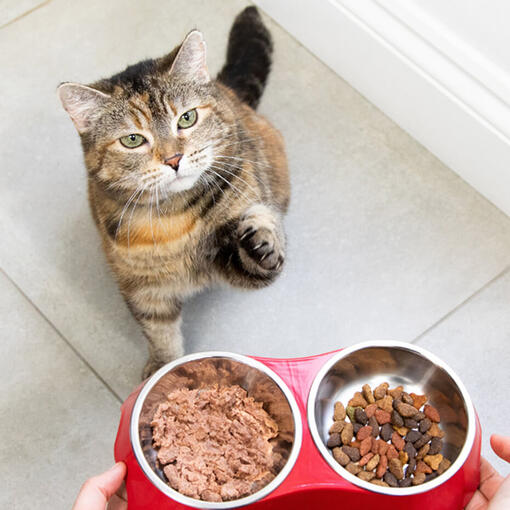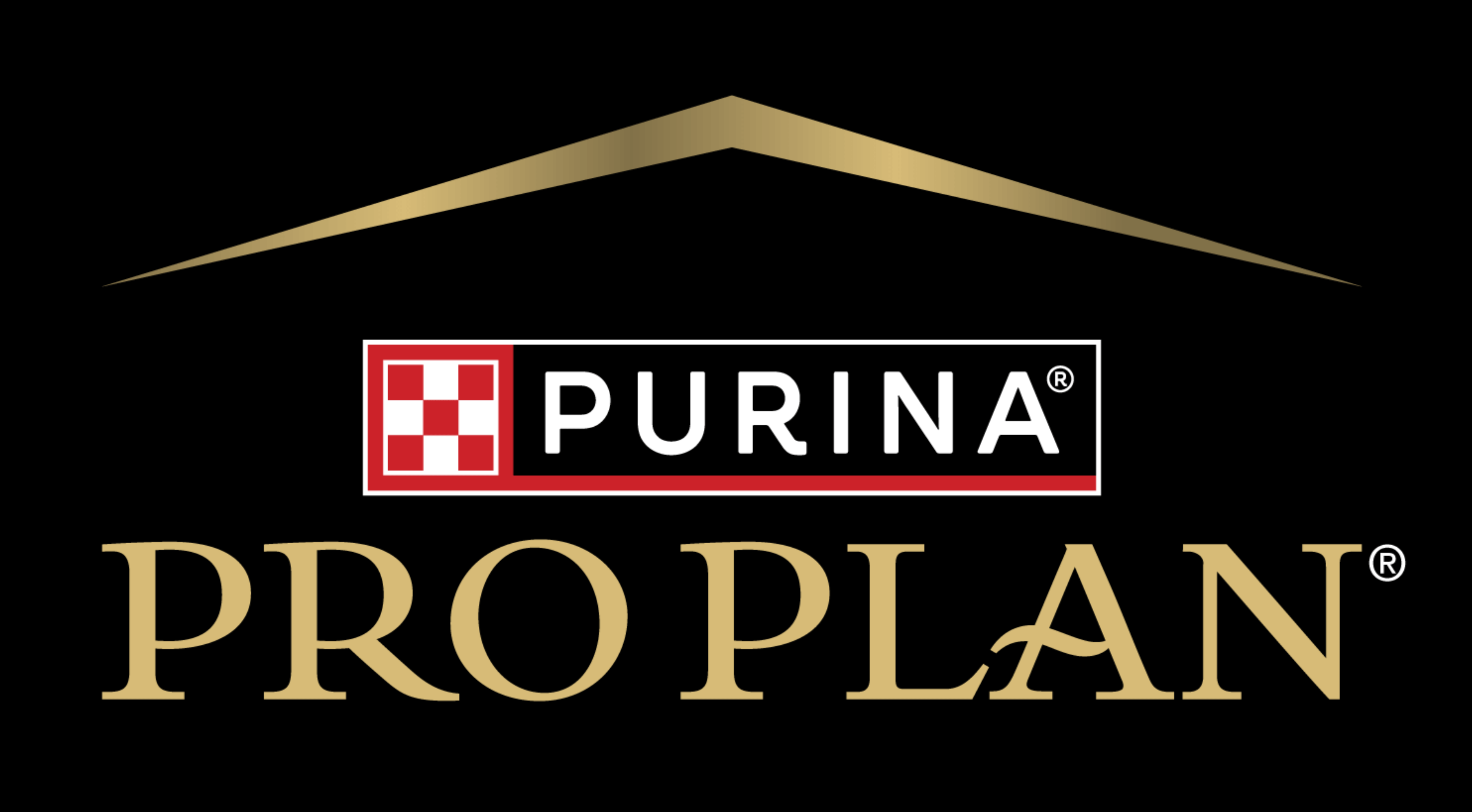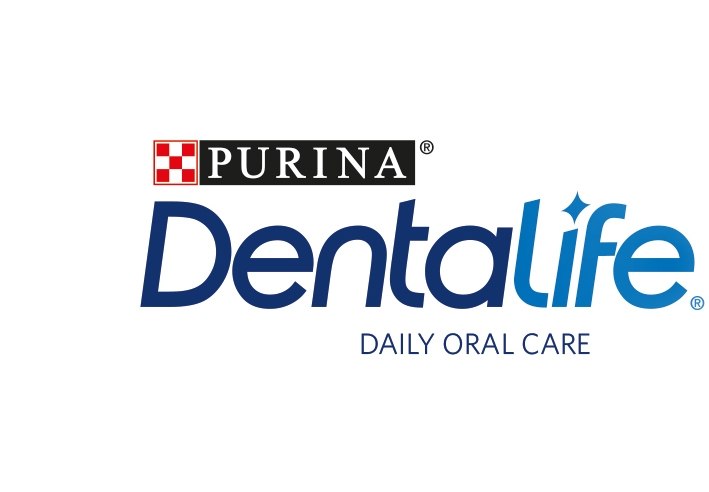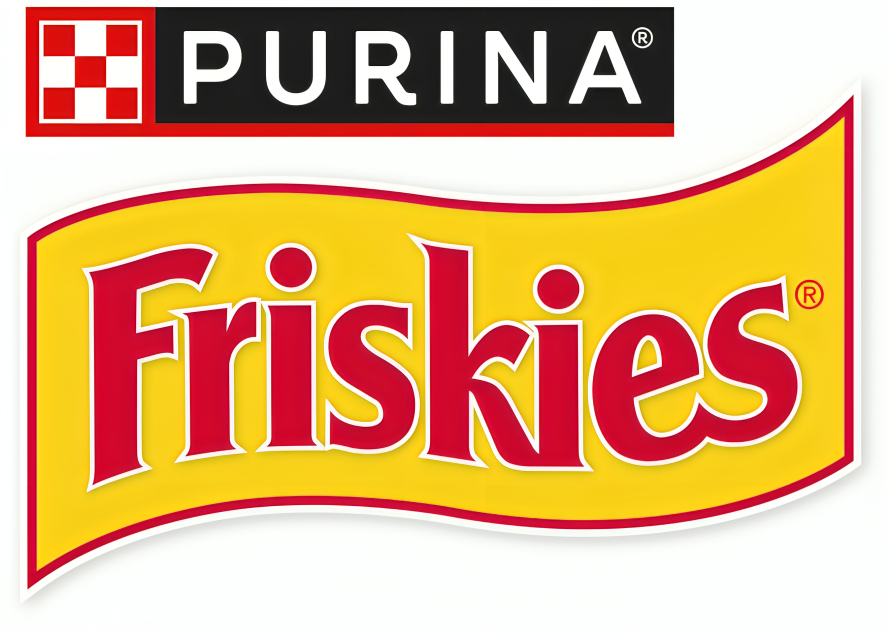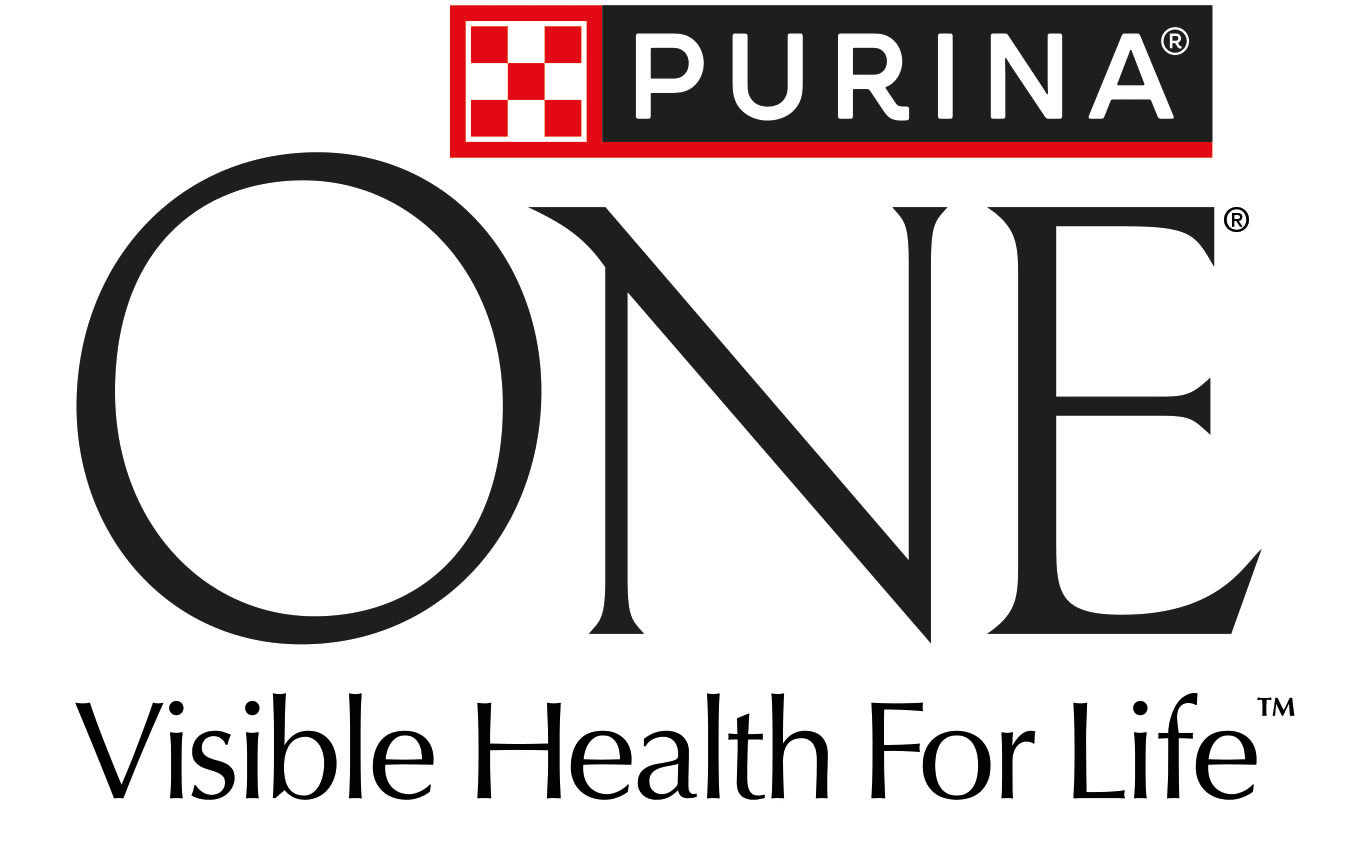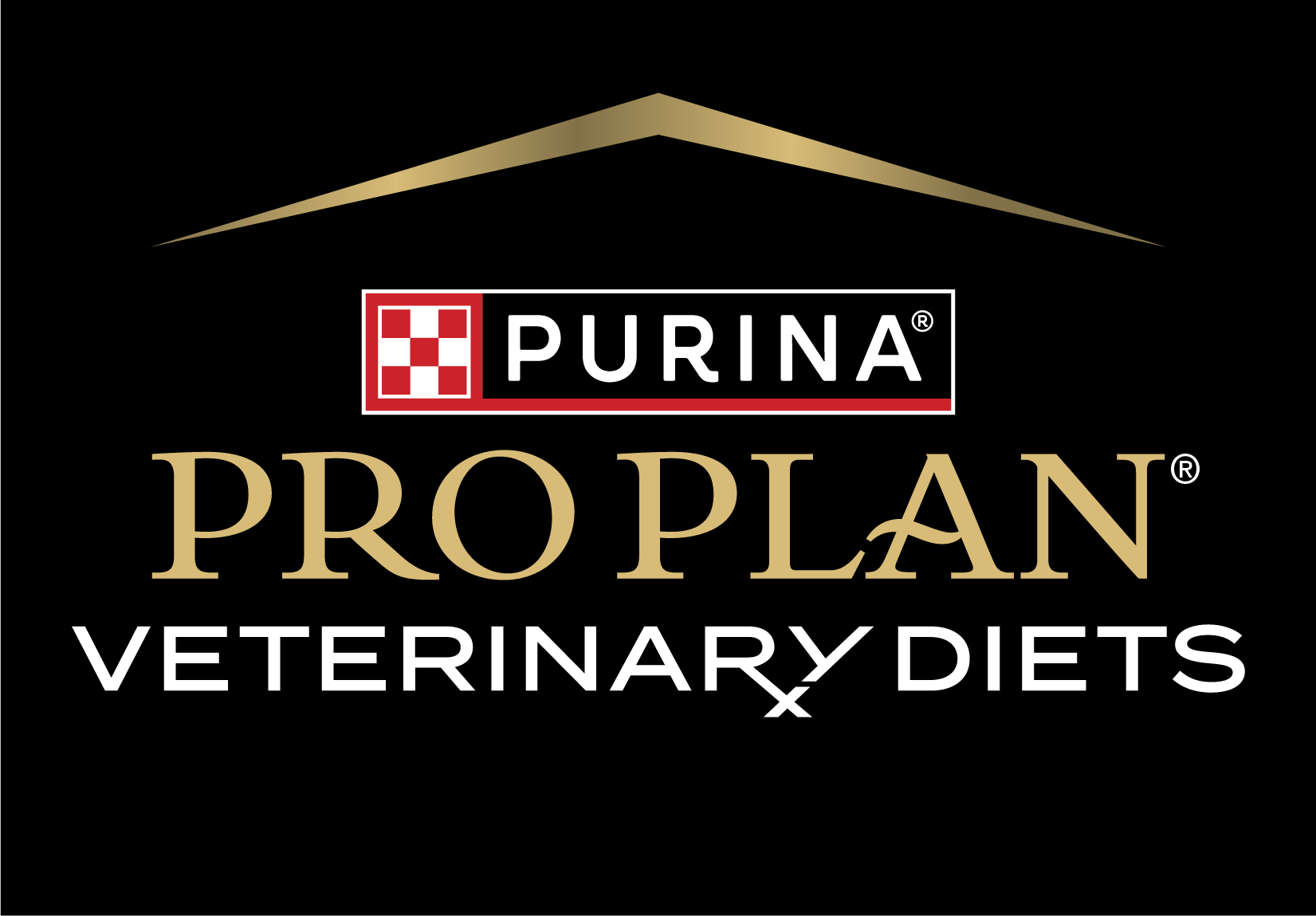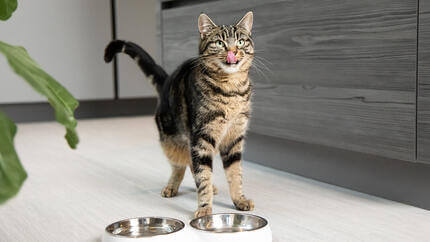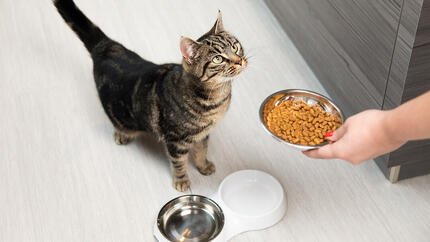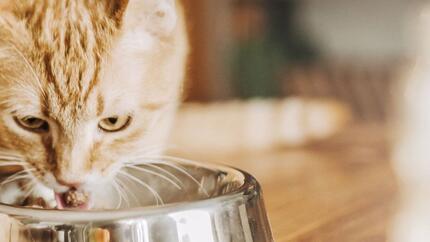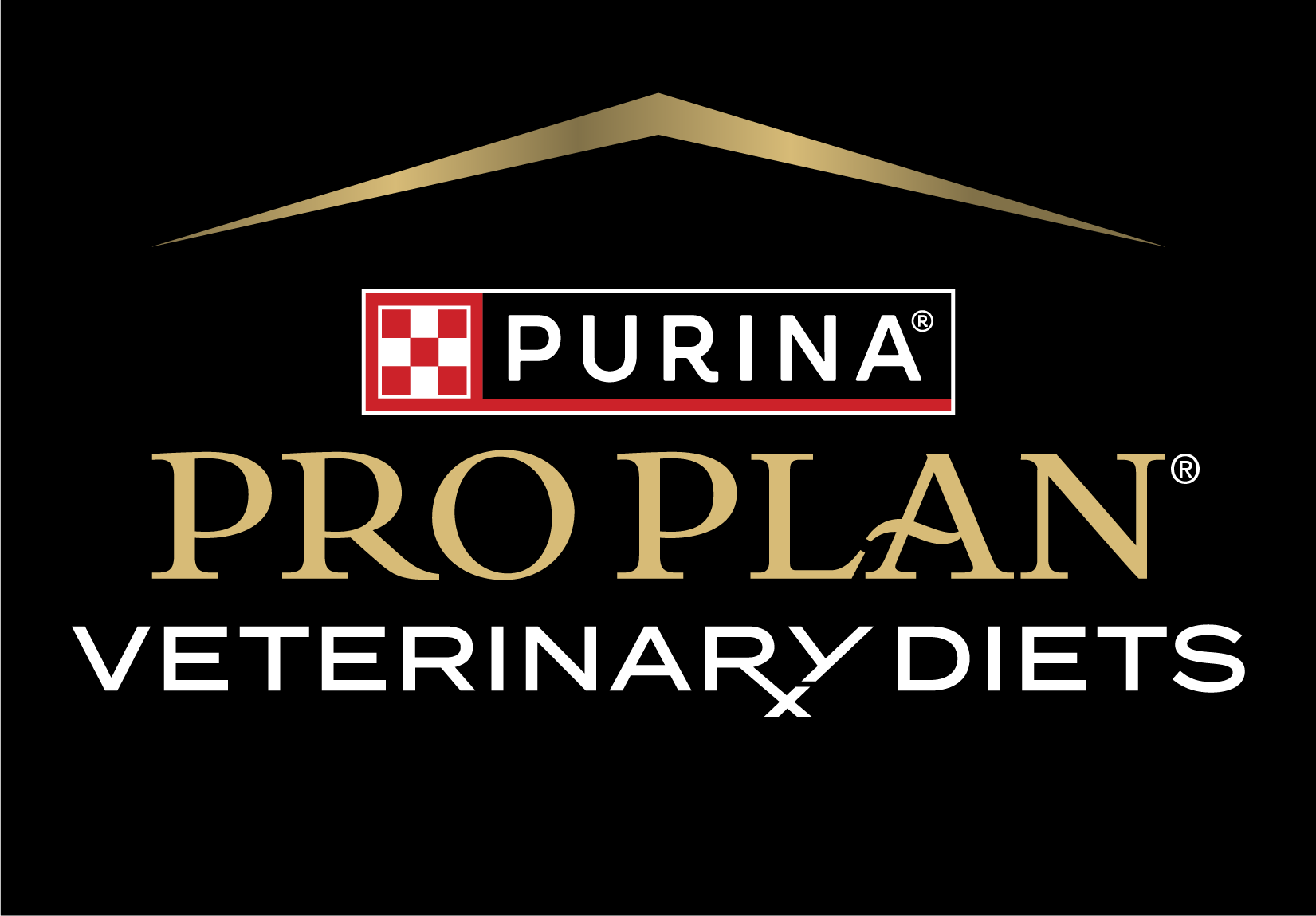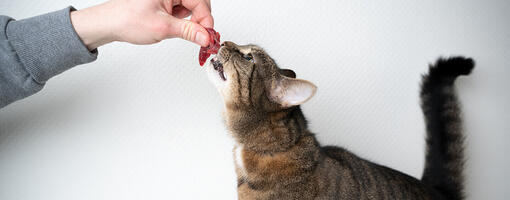
There is significant debate on whether we should feed our feline friends raw meat or not. We’ve put together a quick guide looking at the considerations and the risks of feeding your cat raw meat.
Feeding a raw diet for cats is a controversial topic and there can be genuine health risks to you and your pet. If you decide to try raw-feeding, it is always best to discuss this with your vet first. They can give advice on responsible raw-feeding, making sure your cat receives a suitably balanced diet, and highlight some of the health and hygiene concerns that need addressing.
What is a raw food diet for cats?
Raw cat food refers to a diet that includes raw meat, sometimes containing raw offal and bone, in addition to other uncooked ingredients such as vegetables. A raw diet can be homemade or commercial, with the commercially available types being sub-divided into complete and complementary diets.
A complete diet will contain the correct balance of nutrients that your pet needs in order to be fed solely on this food. However, a complementary food should be fed in combination with another diet, in line with the manufacturer’s recommendations. Homemade raw diets are not recommended as they can be very variable in terms of whether they adequately and consistently meet your pet’s nutritional requirements. This means they should only be fed under specialist guidance, and are likely to need additional supplementation to avoid deficiencies.
There are purported benefits and drawbacks to a raw food diet for cats, which contribute to both sides of the debate on whether cats should eat raw meat. Here is what you need to know about raw cat food:
Can cats eat raw chicken and other meats?
There are food safety concerns to both pet and owner with feeding raw chicken, which will be discussed in more detail below. Supporters of raw diets for cats often mention that these diets allow the cat to consume food that is more similar to the diet of wild cats. After all, no one is cooking the rodent a wild cat just caught for dinner! It is important, though, to consider that our domesticated felines have come a long way since their ancestors, and that life expectancy of our pets is greater than wild cats.
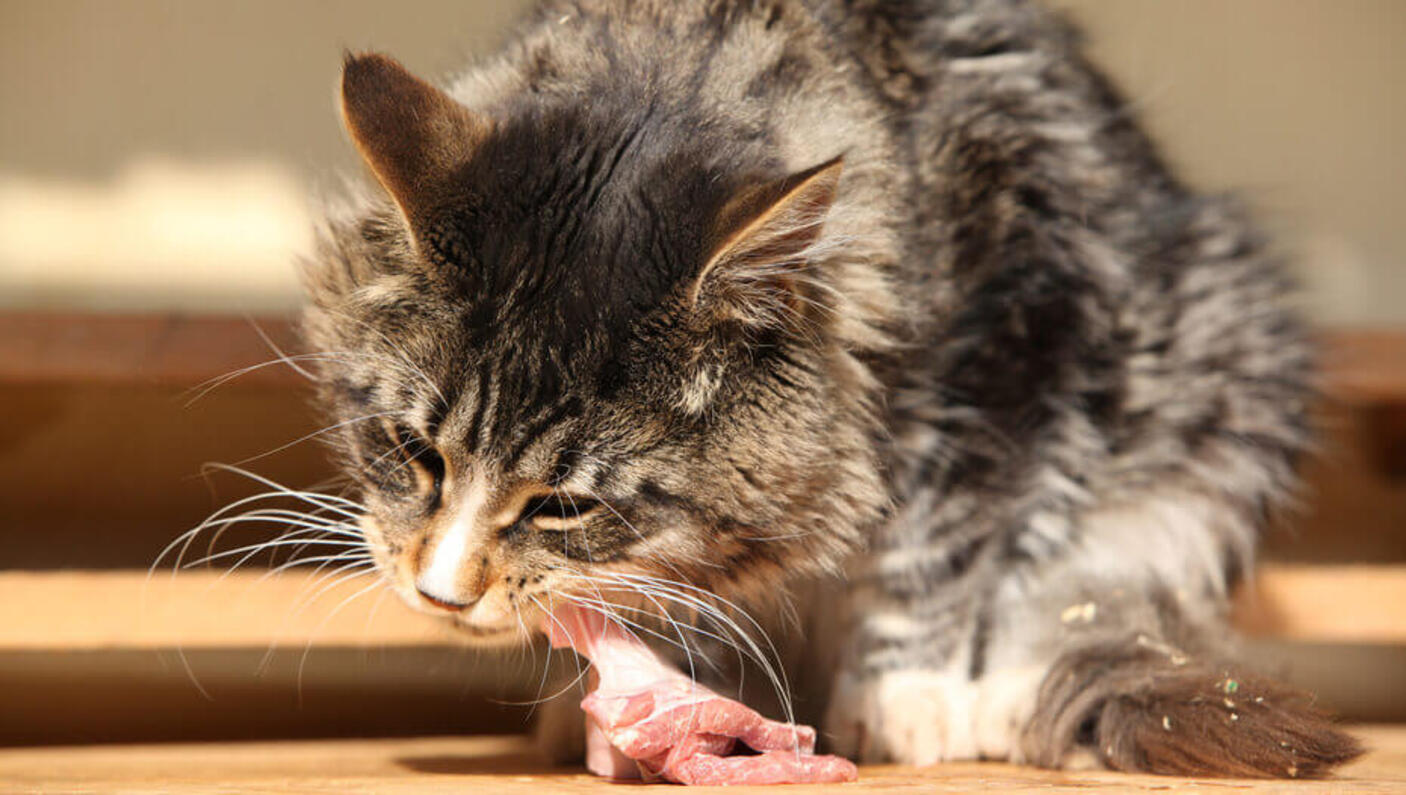
What are the risks of a raw diet for cats?
To make an informed decision on feeding raw cat food, we need to look at what the safety risks are for both our pet and ourselves.
Cats can get sick as a result of the parasites and bacteria living in raw meat which can contaminate raw diets. It is possible for cats to pass this on to humans, and to shed bacteria within the household. Commercial raw diets are subject to legislation and testing, which aims to minimise the risk of food-borne illnesses. Homemade raw diets can pose a greater problem and pet owners must always source ingredients from safe and reliable sources to ensure food safety.
Decrease the risk of contamination by using a suitable commercial diet, disinfecting all the surfaces that have come in contact with the food and thoroughly washing your hands or even wearing gloves when handling it. Pregnant or immunocompromised people should be particularly cautious, as they are at greater risk. All diets should be stored appropriately, usually in the freezer, and tightly sealed to avoid cross-contamination. Follow guidelines on safely defrosting frozen raw cat food diets.
Raw food diets for cats made at home are less likely to have complete and balanced quantities of nutrients, as the properties of ingredients can be inconsistent, increasing the risk of nutrient deficiencies. Therefore, homemade diets, raw or otherwise, are not recommended, although a more balanced diet is possible with expert advice. Find out more about how to feed your cat a balanced diet with our article.
Keep in mind that a commercially available, reputable, complete cat food based on raw meat might be a better option. This is specifically formulated by pet nutritionists to meet the needs of your pet and tested to make sure they meet safety standards.
Small bone pieces can end up in your cat’s raw meat dinner and pose a threat if they become lodged in the digestive tract. Bones can also cause damage to teeth. Cooked bones are also considered dangerous as these can splinter once swallowed and can cause internal damage.
Take these risks into consideration and make sure you consult the vet before feeding your cat raw chicken or any other type of raw meat.
In short – can cats eat raw diets?
Overall, it’s best to do plenty of research and consult your vet before feeding your cat a raw diet. There’s no benefit to raw over cooked meats, and the risks are much higher. However, if you do want to feed your cat a little raw meat as a treat, read our guidance below.
Can cats eat raw bacon?
Although cats can eat raw bacon, as it is not toxic, it is not very good for their health. Bacon tends to be high in salt and fat, so it’s best to use it as an occasional treat rather than a staple food in your cat’s diet. Make sure the bacon is fresh, raw not cured, and keep surfaces and kitchen utensils clean after they’ve been in contact with the raw bacon.
Can cats eat raw fish?
Home-feeding your cat raw fish is not recommended as it can contain bacteria that could result in food poisoning. However, some commercial raw diets do contain fish.
Can cats eat raw beef?
Yes, cats can eat raw beef, but we recommend only giving it in moderation and being aware that raw meat carries the risk of food poisoning. Ensure it’s fresh and doesn’t contain any seasoning which may be hazardous to their health.
Can cats eat raw pork?
Cats can eat raw pork, but it carries the risk of disease and parasites. As with other raw meats, it needs to be fresh and without seasonings.
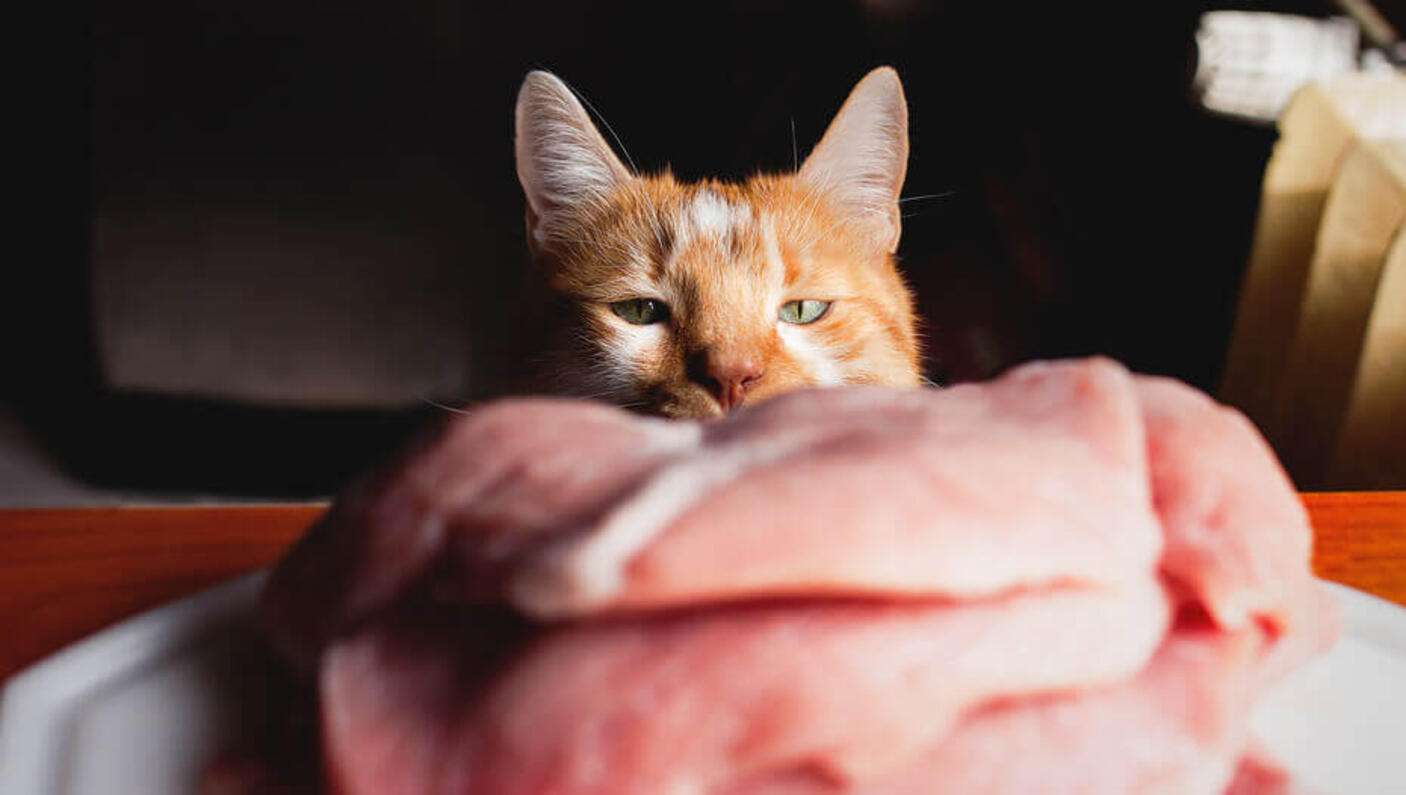
Even though cats can eat raw meat, it doesn’t mean they should, and is not without its risks. Consult with the vet before making a decision about whether to try raw feeding.
Next, find out our top tips for cat snacks and treats, including which ones to choose, and what are some of the most toxic foods that can be easily confused for cat treats including grapes.

